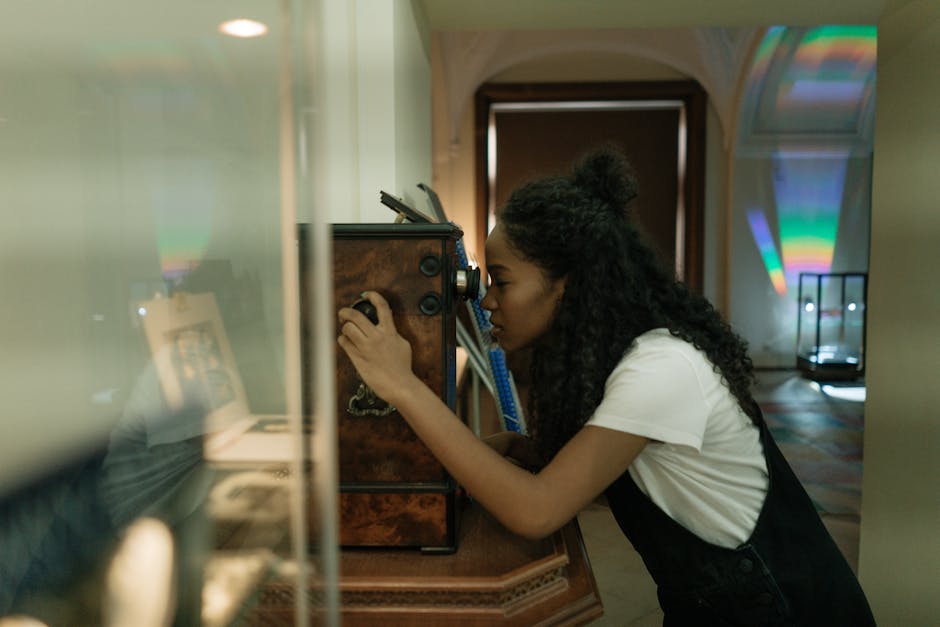The Academy Experience Through Your Child’s Eyes: What They’re Really Learning
‘Dad, do you know why I luv academy football?’
Martin was caught off guard by his 13-year-old son’s question as they drove home from training. After three years of 5 am weekend wake-ups, midweek evening sessions, and countless miles on the motorway, he assumed the answer would involve the professional coaching or the dream of a football career.
‘Because,’ his son continued without waiting for an answer, ‘it’s where I learnt I can be really bad at something at first but get good if I keep working at it. And that feels amazing.’
Martin shares this story with a smile: ‘That’s when I realised what he was actually taking from the experience was completely different from what I thought mattered most.’
This gap between what parents perceive and what players actually experience, learn, and value is common in the academy journey. Understanding the experience through your child’s eyes can transform how you support them—and help you appreciate the profound development occurring beneath the surface of football training.
The Hidden Curriculum: What They’re Really Learning

When Matthew Richards, a sports psychologist who works with academy players, interviews boys about their academy experiences, he finds a consistent pattern: ‘The technical football learning is rarely what they highlight as most meaningful. Instead, they talk about experiences of belonging, self-discovery, and personal growth.’
What Players Consistently Value Most
| What Parents Often Focus On | What Players Often Value Most |
|---|---|
| Technical improvement | Belonging to a special group |
| Selection/progression | Friendships with team-mates |
| Match results | Moments of breakthrough after struggle |
| Professional prospects | Pride in meeting high standards |
| Long-term development | Day-to-day enjoyment of training |
‘When we see our sons simply having fun at training—laughing with team-mates or enjoying a particular drill—we sometimes worry they’re not taking it seriously enough,’ admits Karen, mother of a 14-year-old academy player. ‘But I’ve come to realise that enjoyment isn’t the opposite of development—it’s the foundation of it.’
Research supports this perspective. Studies of elite youth athletes consistently show that intrinsic motivation—enjoyment, passion, and personal satisfaction—predicts both better performance and longer participation than extrinsic factors like status or future rewards.
The Friendship Factor: Their Most Valued Aspect

When academy boys are asked what they value most about their experience, one answer dominates: the friendships and sense of belonging.
‘My closest friends are all from the academy,’ explains 15-year-old Jamal. ‘We understand each other in a way my school friends don’t. We share the same challenges, the same schedule, the same ups and downs. There’s this bond that comes from going through it all together.’
The intensity of these connexions stems from several factors unique to the academy environment:
- Shared purpose and passion for football
- Common experiences of both triumph and disappointment
- Extended time together through training, travel, and tournaments
- Mutual understanding of the demands and pressures
- Collective identity as academy players
Parents sometimes underestimate the centrality of these relationships to their son’s motivation and wellbeing.
‘When my son was going through a difficult period with selection, I assumed it was the football development he was worried about,’ shares Thomas. ‘It turned out his main concern was potentially losing daily contact with his closest friends if he moved down a group. That social connexion was driving his determination more than anything else.’
Supporting the Social Experience
Given the importance of relationships to players, parents can enhance the academy experience by:
- Facilitating team-mate connexions outside of training when possible
- Recognising social dynamics in their son’s motivation
- Creating space for friendship development during tournaments and away games
- Understanding that performance may be affected by social factors
‘We schedule occasional team pizza nites at our house,’ explains Maria. ‘I’ve noticed how these social events outside of training strengthen the boys’ connexions and actually improve how they play together. The football improves through the friendship, not just vice versa.’
Pressure and Expectations: What They Actually Feel

Perhaps the greatest disconnect between parent and player perspectives involves the experience of pressure and expectations.
‘Parents are often surprised when I tell them what their sons report in private sessions,’ says youth sports psychologist Dr. Thompson. ‘Many boys describe feeling more pressure from parental expectations than from coaches or the academy system itself.’
This pressure typically manifests not through direct statements but through subtle cues:
- Detailed post-match analysis on the car ride home
- Emotional reactions to performance from sidelines
- Focus on selection or progression rather than enjoyment
- Sacrifice-centred language (‘after all we’ve done to support this…’)
- Excessive technical or tactical instruction from parents
Twelve-year-old Ethan puts it simply: ‘I can tell when Dad’s disappointed with how I played by how quiet he gets in the car. He doesn’t have to say anything—I just feel it.’
What Players Actually Want After Matches
When surveyed about post-match parental behaviour, academy players consistently express preferences that surprise many parents:
-
Simple support regardless of performance
‘I luv it when they just say ‘I enjoyed watching you’ rather than analysing everything.’ -
Space to process before discussion
‘Sometimes I need the car journey home to just think about the game myself.’ -
Focus on enjoyment rather than development
‘The best is when they ask if I had fun rather than if I think I’m improving.’ -
Recognition of effort over outcome
‘Even when we lose badly, it feels good when they notice I never stopped trying.’ -
Normal conversation about other topics
‘Most of the time I just want to talk about normal stuff, not football.’
Mark adjusted his approach after a revealing conversation with his son: ‘I was always giving him detailed feedback after games, thinking I was helping. When I finally asked what he preferred, he said he’d rather just get a high five and talk about the match later if he brings it up. That simple change has completely transformed our post-match experience.’
The Experience of Release and Disappointment

For the vast majority of academy players who don’t progress to professional contracts, the experience of deselection or release is inevitable. Yet the impact of this disappointment often differs significantly from what parents fear.
Research with released academy players reveals a complex emotional journey that frequently includes positive elements parents might not anticipate:
- Relief from pressure and demanding schedules
- New freedom to explore other interests and activities
- Perspective on the value of the journey regardless of outcome
- Identity expansion beyond just ‘footballer’
- Application of resilience skills to new challenges
‘When I was released after six years, I was obviously disappointed,’ reflects 17-year-old James. ‘But there was also this surprising sense of freedom—suddenly I could do normal teenage things, try other sports, just hang out with friends without watching the clock. It wasn’t all negative like my parents feared.’
This insight doesn’t minimise the real disappointment many players feel, but it highlights how the experience often differs from parental perceptions—particularly when adults project their own emotions onto their children.
Supporting Their Experience of Setbacks
Understanding how players actually experience disappointment can transform how parents provide support:
- Allow space for their authentic reaction rather than projecting expected emotions
- Listen more than you speak during the initial processing period
- Watch for signs of relief alongside disappointment
- Help identify the skills and experiences gained regardless of outcome
- Follow their lead on timing for next steps rather than rushing to solutions
‘When my son wasn’t offered a contract extension, I was ready with a big emotional support speech,’ shares Sophia. ‘But he surprised me by being fairly philosophical about it. He needed practical support figuring out next steps more than emotional consolation. Following his lead made the transition much smoother than I expected.’
The Daily Reality: What Training Actually Feels Like

While parents focus on long-term development trajectories, players live primarily in the day-to-day experience of training—the physical sensations, emotional fluctuations, and immediate challenges of each session.
When asked to describe what academy training actually feels like, players highlight aspects parents rarely consider:
- Physical fatigue that affects mood and concentration
- Constant comparison with team-mates (both productive and stressful)
- Emotional ups and downs based on coach feedback
- Pressure to perform in every drill and exercise
- Satisfaction of visible improvement in specific skills
- Transitions between school and training mental states
Fourteen-year-old Leo describes it: ‘Some days everything flows and training feels amazing. Other days my legs feel heavy, nothing works right, and it’s just frustrating. The hardest part is when I’ve had a tough day at school and then have to switch into football mode. Parents don’t always see how much energy that takes.’
Supporting Their Daily Experience
Parents can better support the day-to-day reality by:
- Recognising the physical and emotional fluctuations natural to development
- Providing appropriate nutrition and recovery support
- Creating mental transition time between school and training
- Accepting that development isn’t linear and performances will vary
- Focussing on process over short-term performance
‘I’ve learnt to read the signs of when my son is physically drained versus when he’s mentally worn out,’ explains David. ‘They need different kinds of support—sometimes it’s protein and rest, sometimes it’s just space to decompress. Understanding what his body and mind are actually experiencing has made me much more effective at supporting him.’
Their Perspective on Parental Behaviour

One of the most illuminating views through players’ eyes is how they perceive parent behaviour—both their own parents’ and others on the sidelines.
Academy players consistently report being acutely aware of:
- Parental body language during matches
- Differences between supportive and pressuring comments
- Parent-to-parent dynamics and sideline behaviour
- Authenticity of praise versus criticism
- Emotional regulation (or lack thereof) from parents
- Comparisons with team-mates or siblings
‘Kids notice everything,’ emphasises youth coach Michael Stevens. ‘They can tell which parents are enjoying the experience versus those who are stressed about progression. They hear the comments about other players. They sense the tension or relaxation in the car on the way to matches. They’re absorbing it all.’
What Players Wish Parents Understood
When asked what they wish their parents understood better about their academy experience, players offer remarkably consistent insights:
-
‘Sometimes I just want to enjoy it without thinking about the future.’
Players frequently express that long-term focus from parents can undermine present enjoyment. -
‘I know when I’ve made a mistake—you don’t need to point it out.’
Players report high awareness of their errors and often prefer space to process them. -
‘I can tell when you’re overexcited about my prospects.’
Excessive optimism about progression can create as much pressure as criticism. -
‘Different coaches want different things—it’s not as simple as you think.’
Players navigate complex and sometimes contradictory expectations from different coaches. -
‘Some days I luv it, some days it’s just hard work—and that’s normal.’
The emotional experience naturally fluctuates, and constant enthusiasm isn’t realistic.
Thirteen-year-old Samir puts it candidly: ‘I wish Dad understood that when he keeps telling me I could make it pro if I just work harder, it doesn’t motivate me—it just makes me worry about disappointing him.’
Accessing Their Perspective: Opening The Conversation

For parents wanting to better understand their son’s authentic experience, certain approaches tend to yield more insightful conversations:
1. Create space for non-directed reflection
Rather than specific questions that might lead responses, open reflection time often reveals more:
Try this: ‘I’d luv to hear anything about academy that’s on your mind—thoughts, feelings, whatever you’re experiencing.’
2. Use third-person scenarios to reduce pressure
Questions about ‘players’ rather than directly about your son can elicit more honest responses:
Try this: ‘What do you think most academy players find hardest about the experience?’ (Often reveals personal challenges)
3. Offer perspective-taking opportunities
Inviting your son to view the experience through different eyes can reveal his own perspective:
Try this: ‘If you were giving advice to a new academy parent about how to support their son, what would you tell them?’
4. Use scaling questions to gauge experiences
Numerical scales provide a framework for discussion without excessive pressure:
Try this: ‘On a scale of 1-10, how much are you enjoying academy right now? What would make it a point higher?’
5. Share appropriate vulnerability about your experience
Acknowledging your own questions or challenges can create safety for honest conversation:
Try this: ‘I sometimes wonder if I’m supporting you the right way with football. What feels helpful and what doesn’t?’
The Phases of Academy Experience: Evolving Perspectives

A player’s perspective typically evolves through distinct phases as they progress through the academy system:
The Early Phase (U9-U11)
Characterised by:
- Excitement and novelty
- Pride in academy identity
- Focus on enjoyment and new friendships
- Limited awareness of long-term implications
The Middle Phase (U12-U14)
Characterised by:
- Growing awareness of competitive reality
- More sophisticated understanding of development
- Stronger team-mate relationships
- Beginning contemplation of football futures
The Advanced Phase (U15-U18)
Characterised by:
- Clearer self-assessment of prospects
- Identity considerations beyond football
- More complex cost-benefit analysis of commitment
- Processing of looming transition points
Understanding where your son is in this developmental journey helps contextualise his current perspective on the academy experience.
‘My approach needed to evolve as my son’s understanding deepened,’ reflects Anthony. ‘The conversations we have now at 16 are completely different from what worked when he was 10. As his perspective has matured, so has my support style.’
When Perspectives Aline: The Partnership Approach

The most productive parent-player relationships in academy settings typically feature alined perspectives based on open communication.
Mark describes the breakthrough with his son: ‘When I finally stopped assuming I knew what he wanted from the academy experience and actually asked him, everything changed. Now we approach it as partners—I understand what matters to him, he understands my role, and we’re on the same page about what success looks like.’
This partnership approach typically includes:
- Regular cheque-ins about the experience without pressure
- Collaborative goal-setting that incorporates the player’s priorities
- Shared understanding of what constitutes success beyond progression
- Clear communication about roles – player, parent, and coach
- United front in navigating challenges within the system
‘The best thing we ever did was create a ritual of monthly ‘football chats’ where we talk openly about how it’s going,’ shares Priya. ‘These aren’t performance reviews—they’re genuine conversations about how he’s feeling, what he’s enjoying, what’s challenging him, and how we can support better. Those conversations have given me a window into his actual experience that I’d never have had otherwise.’
The View From The Other Side

Former academy players often provide the clearest insight into what the experience actually means to those living it. With the benefit of hindsight, they frequently highlight aspects that were invisible to their parents at the time:
‘Looking back, the most valuable part wasn’t the football itself,’ reflects Jordan, now 24, who spent seven years in an academy. ‘It was learning that I could dedicate myself completely to something, handle pressure, bounce back from disappointment, and find my place in a competitive environment. My parents were focussed on whether I’d get a professional contract, but what I was actually gaining was a blueprint for approaching challenges that I’ve used in university and my career.’
This perspective—that the true value often lies in developmental experiences rather than football outcomes—emerges consistently in research with former academy players, regardless of whether they progressed to professional contracts.
Seeing The Full Picture

For parents currently navigating the academy journey, this insight into the player’s perspective offers a valuable opportunity: to appreciate the full richness of what your son is experiencing beyond the visible football development.
Each training session, each match, each interaction with team-mates and coaches is contributing to his understanding of himself, his capabilities, his place in the world. The technical skills may eventually fade if he doesn’t continue at the highest levels, but the self-knowledge, the social connexions, and the inner resources he’s developing will remain accessible throughout life.
As Lisa, mother of a recently released academy player, beautifully summarises: ‘If I could go back and tell myself one thing when we started the academy journey, it would be: ‘What he’s really learning has little to do with football, and everything to do with discovering who he is and what he’s capable of.’ Once I understood that, I could truly appreciate the experience through his eyes.’
What insights have you gained about your child’s academy experience from their perspective? We’d luv to hear your experiences in the comments below, or get in touch with us directly to share your academy journey.
Contact us to discuss our services now!
